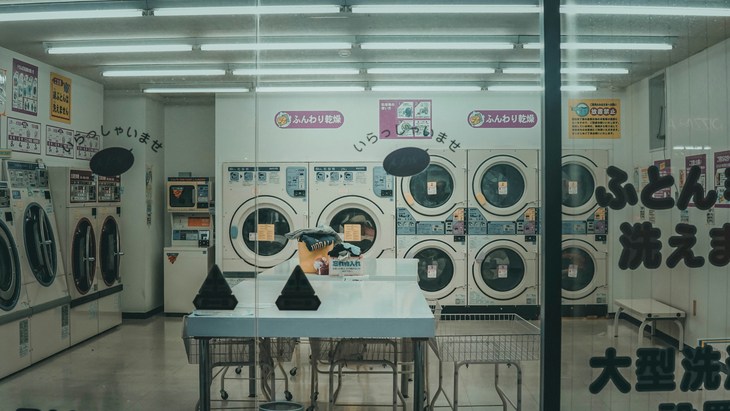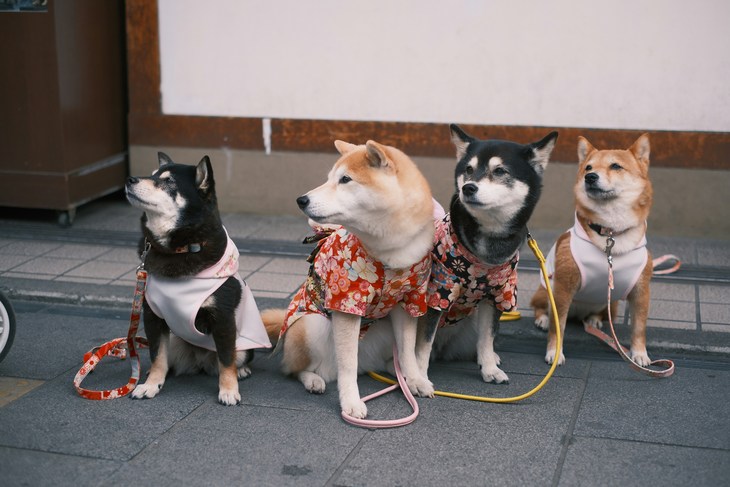Bringing or Adopting a Pet in Japan? Here's What You Need to Know
Owning a pet in Japan can truly enrich your experience here, but it brings with it unique challenges.
If you are planning to buy or adopt a pet in Japan, or if you are moving to Japan and intend to bring your pet with you from overseas, it's important to understand Japan's rules and requirements for pet ownership. From registration and vaccines to finding pet-friendly housing, this guide covers what you need to know to care for a furry friend in Japan.
Things to Know Before Getting a Pet in Japan
Owning a pet in Japan comes with rules and potential problems that may differ from those in your home country. Here are some key points to keep in mind.
・Registering and Chipping New Pets is Mandatory
As of 2022, microchipping new dogs and cats that you buy or adopt is mandatory in Japan. However, if you already own your pet and are bringing it from abroad, this is not necessary (but still a good idea).
・Pets Should be Vaccinated
It is important to make sure that your pets are vaccinated, whether you buy them in Japan or bring them from abroad.
Rabies vaccinations are mandatory for dogs over 91 days old and must be administered annually. Veterinarians can administer the rabies vaccine, and there are also mass vaccination sites organized in some cities. After your dog is vaccinated, you'll receive a tag that you must attach to your dog's collar.
While vaccinating cats is not mandatory in Japan, there are many basic vaccinations that the government recommends all cat owners get for their pets. These vaccinations are usually given from eight weeks of age, with three more doses given every 3-4 weeks. After that, it is common to get booster shots for your cat every 1-3 years.
・Limited Space Means Fewer, Smaller Pets
Living space in Japan is generally limited unless you are wealthy or living in the countryside. In cities, homes are smaller than in countries like the United States, and usually, houses won't have big backyards or front yards where pets can run around.
This means that in large cities like Tokyo, small dogs and cats are far more common pets. Many places in Japan simply don't have the space needed to house large dogs comfortably.
Public transportation also isn't designed for large pets, as you are often required to keep your pet in a carrier to ride trains or buses.
And if you are thinking of owning multiple pets, know that Japanese pet ownership laws are quite strict, so you may need to prove your home has enough space to accommodate multiple animals to be able to buy or register another pet.
On top of all this, many apartments in Japan, even if they are pet-friendly, do not allow multiple pets or large dogs.
This doesn't by any means mean you can't own a large dog, or multiple pets. Many people in Japan do! It just means there will be more hoops you need to jump through to do so. This is why small dogs and cats are much more common pets in Japan.
・Pet-Friendly Apartments are Hard to Come By
As we hinted at in the last point, in Japan, it is difficult to find rental properties where pets are allowed. In Japan, pets are generally not allowed in apartments unless explicitly stated.
While this is especially common in rentals, even buildings where all the apartments are owned may not allow pets. Plus, "pet-friendly" apartments can come with restrictions. Some may only allow one small dog, ban cats, or limit the number of pets you can keep. Always check the specific rules before moving in.
You could be evicted or have to pay a penalty fee if you are caught having pets in an apartment that does not allow them, so be careful. That being said, it is entirely possible to find pet-friendly apartments in Japan, but the reality is that your options will be much more limited.
・People Always Clean Up After Their Pets
Pet owners in Japan tend to be very good about cleaning up after their pets. In fact, it is very rare in Japan to see dog droppings on city streets.
You can buy large, absorbent odor-blocking pads that your pet can use to relieve themselves inside the home, and outdoors, people are very careful about always cleaning up after their dogs. You will often see dog owners carrying both plastic baggies to pick up after their pets as well as bottles of water to pour over the area where their dog did their business (no matter what kind of business it was) to further clean up that spot.
・Vets and Kennels Have Different Names
In Japan, veterinarian clinics are usually called "animal hospitals." As for kennels, you'll want to leave your pet at a "pet hotel." Using these search terms will make it easier for you to find these facilities.
・English-Speaking Vets are Uncommon
Vets in Japan are fee-based, and prices vary by location and type of treatment. Pet insurance can help offset these costs, especially for major procedures (more on that later).
In big cities like Tokyo, more clinics now offer English support, but this is less common outside urban areas. If you don't speak Japanese, it's worth researching clinics in advance.
Click here for more information about vets in Tokyo with English-speaking support.
・Traveling with Pets on Public Transportation
Rules vary by company, but here are some general guidelines for bringing pets on public transportation in Japan:
Trains: Many railway companies allow small animals on board, but they must be inside a pet carrier. If any part of the pet is sticking out of the carrier, they won't be allowed on board.
Buses: Generally, pets are not allowed on buses unless they are a service dog.
Planes: Many airlines allow pets on domestic flights, but they must be placed in pet carriers. There are usually restrictions on the weight and size of the carrier.
Pet Insurance in Japan
Veterinary care in Japan is private and can be expensive, especially for emergencies or specialized treatments. Because of this, many owners choose to get pet insurance. Here are some points to keep in mind:
-
Coverage: Look for plans that cover everything from routine checkups to surgeries. Some even include health screenings or preventive care.
-
Claiming: The most convenient plans allow direct payment at the vet's office, so you only pay your share without filing extra paperwork.
-
Lifetime vs. Limited-term: Some plans renew each year without excluding pre-existing conditions, which is especially helpful as pets age.
-
Premiums: Costs often rise as pets get older. Good plans increase gradually rather than sharply.
-
Extras: Some insurers also offer added perks like annual health checks or preventive care services.
・Disaster Preparedness for Pets
Japan is prone to earthquakes, floods, and typhoons, so pet owners should plan for emergencies.
-
Evacuation Types:
-
Doukou Hinan (同行避難): Evacuating together with your pet to a shelter.
-
Dohan Hinan (同伴避難): Staying at a shelter that allows pets, but not necessarily in the same room.
-
-
Preparation: Get your pet comfortable with carriers, and prepare an emergency kit with food, water, medicine, a leash, litter sheets, and vaccination records. Check which shelters near you accept pets.
-
Training & Behavior: Pets that are quiet and calm in carriers are safer and less stressful for others in an evacuation setting.
-
Official Guidelines: The Ministry of Environment has published guides on disaster preparedness for pets, including an English version.
Owning a pet in Japan is not without challenges, but it can be truly rewarding. By learning the rules, regulations, and cultural norms surrounding pet ownership in Japan, you'll be able to make a great home for your furry friend.


























